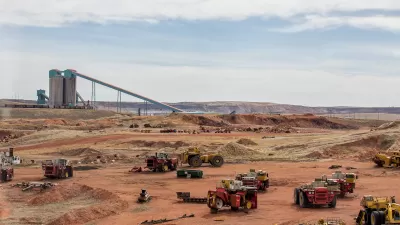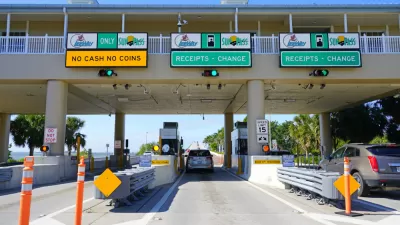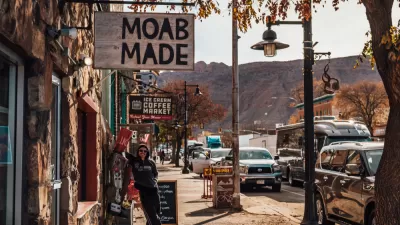Examples from around the world showing that the popular theory often doesn't hold up present powerful implications for commons management.

The concept of the "tragedy of the commons," developed in 1968 by Garrett Hardin, goes like this: "humans, when left to their own devices, compete with one another for resources until the resources run out." Writing in Aeon, Michelle Nijhuis argues that this popular theory, which has since "provided a temptingly simple explanation for catastrophes of all kinds," is "a false and dangerous myth."
Political scientist Elinor Ostrom, who went on to win the Nobel Prize in Economic Sciences in 2009—decades after her pioneering research—found examples from around the world that contradicted Hardin's hypothesis that "[f]reedom in a commons brings ruin to all."
"While Hardin speculated that the tragedy of the commons could be avoided only through total privatisation or total government control, Ostrom had witnessed groundwater users near her native Los Angeles hammer out a system for sharing their coveted resource. Over the next several decades, as a professor at Indiana University Bloomington, she studied collaborative management systems developed by cattle herders in Switzerland, forest dwellers in Japan, and irrigators in the Philippines. These communities had found ways of both preserving a shared resource – pasture, trees, water – and providing their members with a living."
The successful communities, Ostrom observed, featured some similarities: "clear boundaries (the ‘community’ doing the managing must be well-defined); reliable monitoring of the shared resource; a reasonable balance of costs and benefits for participants; a predictable process for the fast and fair resolution of conflicts; an escalating series of punishments for cheaters; and good relationships between the community and other layers of authority, from household heads to international institutions."
Ostrom's research has powerful implications for the field of commons management, an increasingly important aspect of a globalized world facing the threat of destabilizing climate change and other conservation challenges. "While conservation almost always carries at least some short-term costs, researchers have found that many community-based conservation projects reduce those costs and, over time, deliver significant benefits to their human participants, tangible and intangible alike."
FULL STORY: The miracle of the commons

Trump Administration Could Effectively End Housing Voucher Program
Federal officials are eyeing major cuts to the Section 8 program that helps millions of low-income households pay rent.

Planetizen Federal Action Tracker
A weekly monitor of how Trump’s orders and actions are impacting planners and planning in America.

Ken Jennings Launches Transit Web Series
The Jeopardy champ wants you to ride public transit.

Rebuilding Smarter: How LA County Is Guiding Fire-Ravaged Communities Toward Resilience
Los Angeles County is leading a coordinated effort to help fire-impacted communities rebuild with resilience by providing recovery resources, promoting fire-wise design, and aligning reconstruction with broader sustainability and climate goals.

When Borders Blur: Regional Collaboration in Action
As regional challenges outgrow city boundaries, “When Borders Blur” explores how cross-jurisdictional collaboration can drive smarter, more resilient urban planning, sharing real-world lessons from thriving partnerships across North America.

Philadelphia Is Expanding its Network of Roundabouts
Roundabouts are widely shown to decrease traffic speed, reduce congestion, and improve efficiency.
Urban Design for Planners 1: Software Tools
This six-course series explores essential urban design concepts using open source software and equips planners with the tools they need to participate fully in the urban design process.
Planning for Universal Design
Learn the tools for implementing Universal Design in planning regulations.
Ada County Highway District
Clanton & Associates, Inc.
Jessamine County Fiscal Court
Institute for Housing and Urban Development Studies (IHS)
City of Grandview
Harvard GSD Executive Education
Toledo-Lucas County Plan Commissions
Salt Lake City
NYU Wagner Graduate School of Public Service





























